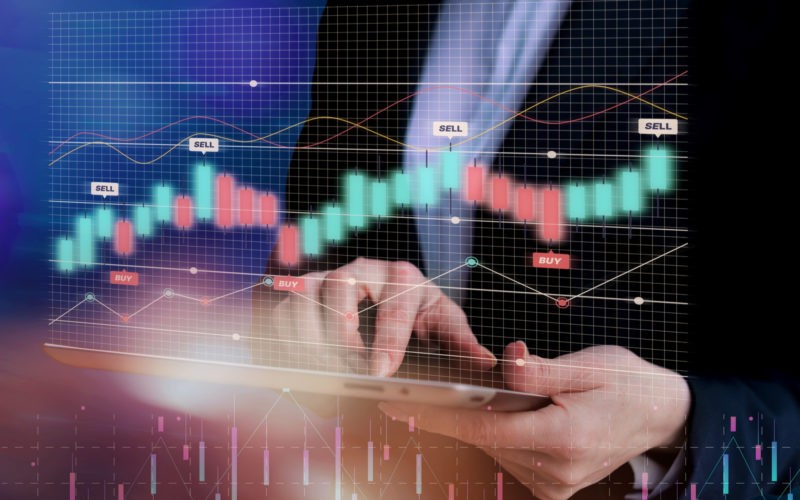The worldwide marketplace for buying and selling currencies is called forex trading, or foreign exchange trading. It facilitates the currency exchange between several nations and acts as the foundation of international investment and trade.
Technology has completely changed Forex trading in the linked world of today, making it a dynamic and very effective market. It is impossible to exaggerate the importance of technology in current Forex trading. It has made procedures easier to understand, giving traders strong instruments for analysis and execution.
Even if technology has improved Forex trading in many ways, its effects are more noticeable in developing countries. These markets have fast economic development and growth, which presents particular problems that technology tries to solve. From infrastructure limitations to legal obstacles, traders in emerging markets depend on technology breakthroughs to negotiate the complexity of the foreign exchange market and take advantage of expansion prospects.
The importance, advantages, and difficulties that technology helps to overcome will be discussed in this blog post along with how it is changing Forex trading in emerging countries.
Recognising Emerging Market Forex Trading
Emerging markets are economies that are undergoing fast industrialization and growth; they are usually distinguished by declining income levels, changing financial markets, and growing middle-class populations. Important to the world economy, these markets provide substantial prospects for both investors and companies to flourish.
For a number of reasons, forex trading is especially significant in emerging markets. First of all, it offers an essential means of promoting foreign investment and commerce and enabling companies to control the currency risks connected to cross-border transactions. Foreign exchange trading also provides liquidity and money to developing market economies, therefore promoting economic expansion.
Exchange rate stability is also maintained and monetary policies can be implemented by central banks of emerging markets through involvement in the Forex market. Emerging market traders frequently go to experienced forex broker for advice and support while negotiating the intricacies of the market. These brokers may provide insightful analysis and help cater to their particular requirements.
Traders in developing countries deal with a number of issues that can affect their ability to trade forex. Inadequate infrastructure, such as slow internet access and antiquated trading platforms, can be one of these obstacles to effective transaction execution. Regulations that can limit market access and raise transaction costs also frequently confront emerging market merchants, such as capital controls and foreign exchange limitations.
Moreover, currency volatility and geopolitical concerns could affect emerging markets, which would make it difficult for traders to control how much of their exposure to market swings. All things considered, handling these obstacles calls for flexibility, fortitude, and the availability of cutting-edge technology.
Forex Trading Technology Evolution
A historical overview of conventional trading practices Forex trading used to be mostly manual, carried out through over-the-counter (OTC) marketplaces or centralized exchanges. Traders would use human judgment and experience extensively, communicating by phone or other ways to carry out trades. Forex trading was limited in effectiveness and scalability by this strategy, which was frequently time-consuming and prone to mistakes.
Technology development in foreign exchange trading
The introduction of automation, digitization, and linkage to the market by technology has completely changed the Forex trading scene. Trading platforms that provide real-time market data, pricing information, and execution capabilities include Reuters Dealing and EBS (Electronic Broking Services). With this move to electronic trading, conventional techniques were significantly abandoned and transactions were quicker and more effective.
Important technical developments
Over time, technical developments have kept changing Forex trading, improving its sophistication, efficiency, and accessibility. Principal developments consist of:
- Trading based on preset rules and parameters has been made possible by the development of algorithms and automated trading systems, which have decreased human error and increased execution speeds.
- By executing a lot of deals at very fast speeds, HFT takes advantage of minute price differences in the market.
- By enabling traders to access the market from any location at any time, the ubiquity of mobile devices and apps has democratized Forex trading. Real-time quotes, charting tools, and order execution capabilities are just a few of the features that mobile trading apps provide to enable traders to stay updated on the market while on the road.
- Trade systems driven by AI use sophisticated algorithms and data analysis methods to find trade opportunities, refine tactics, and more skillfully handle risks. Market conditions can cause machine learning algorithms to change and grow, which over time improves their prediction power.
Through these technical developments, Forex trading has become a dynamic and very efficient market where traders can more quickly and precisely take advantage of opportunities and control risks.
Advantages of Technology for Trading Forex in Emerging Markets
Democratization and accessibility of trading
Technology has increased access to the market and removed entrance obstacles, therefore democratizing Forex trading in developing countries. Regardless of their location or financial capacity, traders in emerging economies may now trade Forex more easily thanks to mobile apps and electronic trading platforms. Greater market participation and liquidity have been fostered by the wider spectrum of people and institutions that are now able to trade Forex thanks to this improved accessibility.
Efficiency and transactional speed
The effectiveness and speed of transactions in Forex trading for emerging markets have been much increased by technological developments. Through the efficient and speedy execution of trades made possible by electronic trading platforms, slippage is minimized and latency is reduced. Trader efficiency is increased overall by the ability to seize opportunities as they present themselves thanks to real-time market data and execution capabilities. Moreover, faster decision-making and execution made possible by algorithms and automated systems allow trading techniques to be automated, hence optimizing trade efficiency.
Risk management and security features
Technology has improved these aspects in Forex trading for developing markets, enabling traders to reduce possible risks and safeguard their money. Stop-loss and limit orders, two advanced risk management techniques provided by electronic trading platforms, let traders specify predetermined levels at which to enter or leave deals, therefore reducing losses and controlling exposure to market volatility. Further enhancing the security of trading platforms and protecting traders’ private data and assets from unwanted access or cyberattacks are developments in cybersecurity technologies.
All things considered, technology’s advantages for emerging markets in Forex trading go beyond efficiency and accessibility to include better risk management tools and stronger security measures that support a more stable and robust trading environment.
Technological Instruments Influencing Forex Trading in Emerging Markets
Platforms and software for trading:
For traders operating in developing markets, trading platforms and software are essential instruments. Among the many features available on these systems are real-time market data, sophisticated charting tools, smooth order execution, and strong risk management tools. Trading platforms help traders to make well-informed judgements and carry out transactions precisely by giving them access to a plethora of data and analysis, which increases the efficacy and efficiency of Forex trading in developing markets.
Automated systems and algorithmic trading
Using algorithms to automate trade execution has transformed Forex trading in emerging markets. Without human involvement, these computers examine market data, spot trading prospects, and carry out transactions according to preset rules and criteria. Automated systems and algorithmic trading improve efficiency, lower latency, and optimize trade execution, therefore maximizing trading opportunities and reducing risks for traders in emerging markets.
Applications of mobile trading
Since they offer traders in developing markets easy and flexible access to the Forex markets at any time, place, mobile trading applications have become essential tools. These apps include smooth order execution, dynamic charts, real-time quotations, and an easy-to-use interface all available on smartphones and tablets. Mobile trading applications enable traders to stay connected to the market and take advantage of opportunities in real time, independent of their location or time zone, by allowing them to track market movements, analyze patterns, and execute trades on the go.
Overcoming Challenges with Technical Remedies
Requirements for infrastructure, connectivity, regulations, and language can all impede effective Forex trading in emerging markets. Technology that offers dependable access to markets, such as cloud-based platforms, low-latency connectivity, and mobile applications, tackles connectivity issues. Automation and regulatory compliance software automate compliance procedures and guarantee that rules are followed.
Furthermore, culturally aware interfaces and multilingual platforms assist in removing language and cultural obstacles, thus promoting efficient trader communication and cooperation. These technical breakthroughs give traders in developing countries the ability to more confidently engage in the international Forex market and smoothly negotiate obstacles.
Trends and Forecasts for the Future
The function of AI and machine learning in Forex trading
Especially for traders in emerging markets, AI and machine learning will be essential in improving decision-making, optimizing methods, and real-time adjusting to market changes.
Blockchain technology integration:
By speeding settlement procedures and lowering counterparty risk, blockchain integration would completely transform transparency, security, and efficiency in Forex trading and provide new chances for peer-to-peer trading to emerging market participants.
Prospects and problems
Although encouraging, these developments are accompanied by difficulties including regulatory adaptation and market instability. They do, meanwhile, also offer chances for creativity and teamwork, which strengthens the trading environment that developing market traders may survive in.
Conclusion
By radically improving accessibility, efficiency, and security, technology has completely changed Forex trading, particularly in developing countries. From sophisticated trading platforms to AI-driven algorithms, technical advancements have given traders the ability to move across the world market with previously unheard-of speed and accuracy.
To remain competitive and grasp fresh chances, traders in emerging markets must aggressively embrace these developments. Future prospects for Forex trading in emerging economies seem bright because of continuous technical developments and growing global market integration.
Rising economies will benefit from increased accessibility, efficiency, and transparency of the Forex market as traders continue to use blockchain, AI, and other developing technology. Unlocking the full potential of Forex trading in emerging economies in the next years will need embracing technical advancements.
Frequently Asked Questions (FAQs)
1. What part does technology play in emerging market forex trading?
Technology improves transactional accessibility, speed, and efficiency, which is essential to Forex trading in developing markets. It helps traders to manage risks well, finish transactions quickly, and get over geographical obstacles.
2. In what ways might technology developments in Forex trading help traders in emerging markets?
By means of better execution speeds, more access to international markets, and more advanced risk management tools, emerging market traders gain from technology developments in Forex trading. These developments enable dealers to engage in level competition with their counterparts in industrialized markets.
3. What principal obstacles must developing market traders overcome in order to use technology in their Forex trading?
Inadequate infrastructure, connectivity problems, legal obstacles, and language limitations are the primary obstacles emerging market traders must overcome in order to use technology for Forex trading. It will need creative solutions and stakeholder cooperation to overcome these obstacles and guarantee the broad acceptance and smooth integration of technology in Forex trading procedures.












